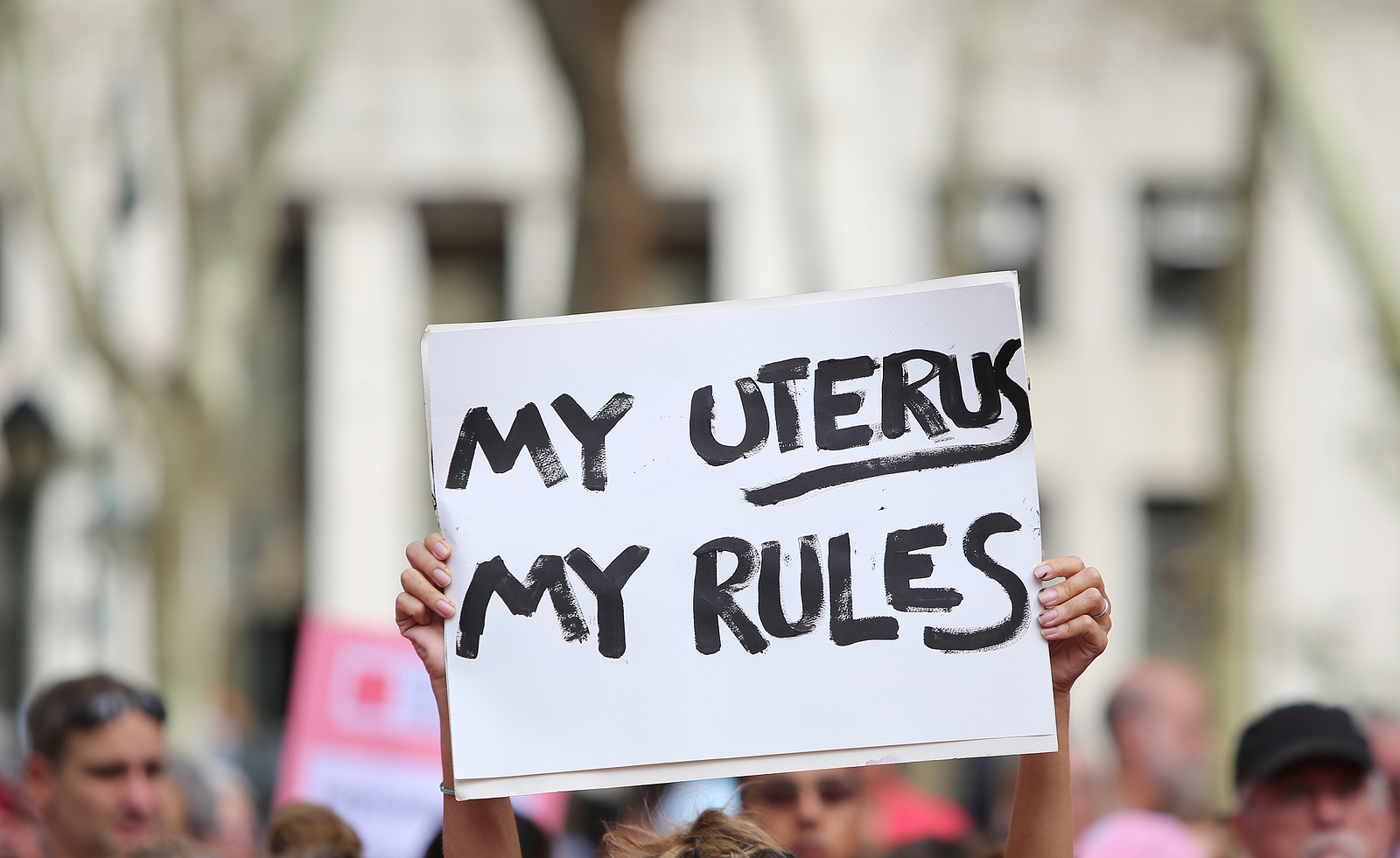Three hundred percent — that’s how much the average drive time to an abortion clinic increased for women living in states that ban abortions at 6 weeks’ pregnant or less post-Dobbs. The average drive time is now equivalent to more than four hours round-trip, or a half-day’s work.
But in places like Florida, that increase is nearly 25 times more than pre-Dobbs drive times. Typically, it takes broad bipartisan support to enshrine such a sweeping policy change. In this case, a small number of Donald Trump’s MAGA sycophants at the state level managed to rip away fundamental reproductive freedoms from women across the United States.
Trump, a felon, made this nightmare a reality by appointing the justices whose votes swung the Supreme Court in Dobbs and enabled these state restrictions. Trump’s actions have laid the groundwork for a breakdown of maternal healthcare by restricting abortion access and, in doing so, punishing women across the political spectrum and exacerbating racial inequality.
Democratic enclaves aren’t immune from the authoritarian control that Trump’s Supreme Court has permitted over their reproductive rights. Even though Republican districts still have longer travel times overall, it’s Democratic districts that have experienced the most significant increase in driving times to an abortion clinic — five times over their pre-Dobbs times. Abortion bans affect everyone.
When women are forced to travel long distances out of state to receive vital healthcare, abortion clinics in neighboring states without bans come under pressure to meet the surge of patients. Bans also create danger for women with a desired pregnancy who may require abortion care for unexpected complications or high-risk pregnancies that present grave long-term health risks.
What’s darker still is that the long travel times created by these bans have disproportionate effects based on someone’s race and ethnicity. For example, Floridians now have an average drive of 9 hours and 8 minutes in one direction to an abortion clinic, a 2,391 percent increase in drive times — the largest percentage increase of any state.
Within Florida, the districts with the longest travel times saw driving distances increase by nearly 11 hours each way, turning what was once less than a 30-minute trip into a multi-day journey. On average, more than two in three women of reproductive age in these districts are Latinas.
Across the board, districts with high populations of Black women or Hispanic women have to drive an hour and a half longer in just one direction compared to women living in districts with lower proportions of these populations. That’s a difference of losing nearly a half-day’s wages. Louisiana, Texas, Alabama and Georgia — which have maternal mortality rates between 20 percent and 76 percent higher than the national average — were among the top five states with the longest drive time spikes. Black women disproportionately experience worse maternal health outcomes, and these findings suggest that abortion bans risk further deepening the Black maternal mortality crisis.
The grim reality is that abortion bans do more than obstruct access to healthcare. They threaten the lives of women, they endanger women with desired pregnancies, and they put women and their families in precarious financial positions.
People in districts like Florida’s Miami-Dade County are now feeling the sting of these harmful policies in their exceptionally long drives that take days of travel to complete.
Even in states with some protections, the Trump-appointed Supreme Court has caused travel times to skyrocket. If we want to undo the harms to abortion access and protect our right to healthcare in the future, we need leaders who are committed to protecting abortion access at the federal level.


